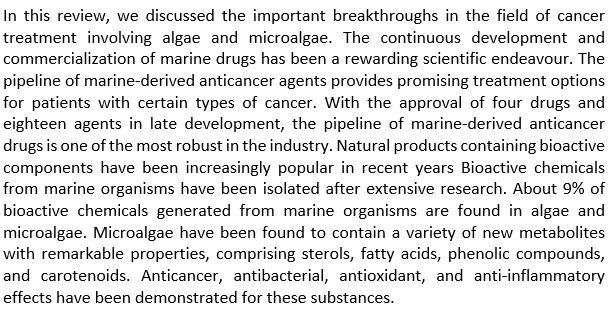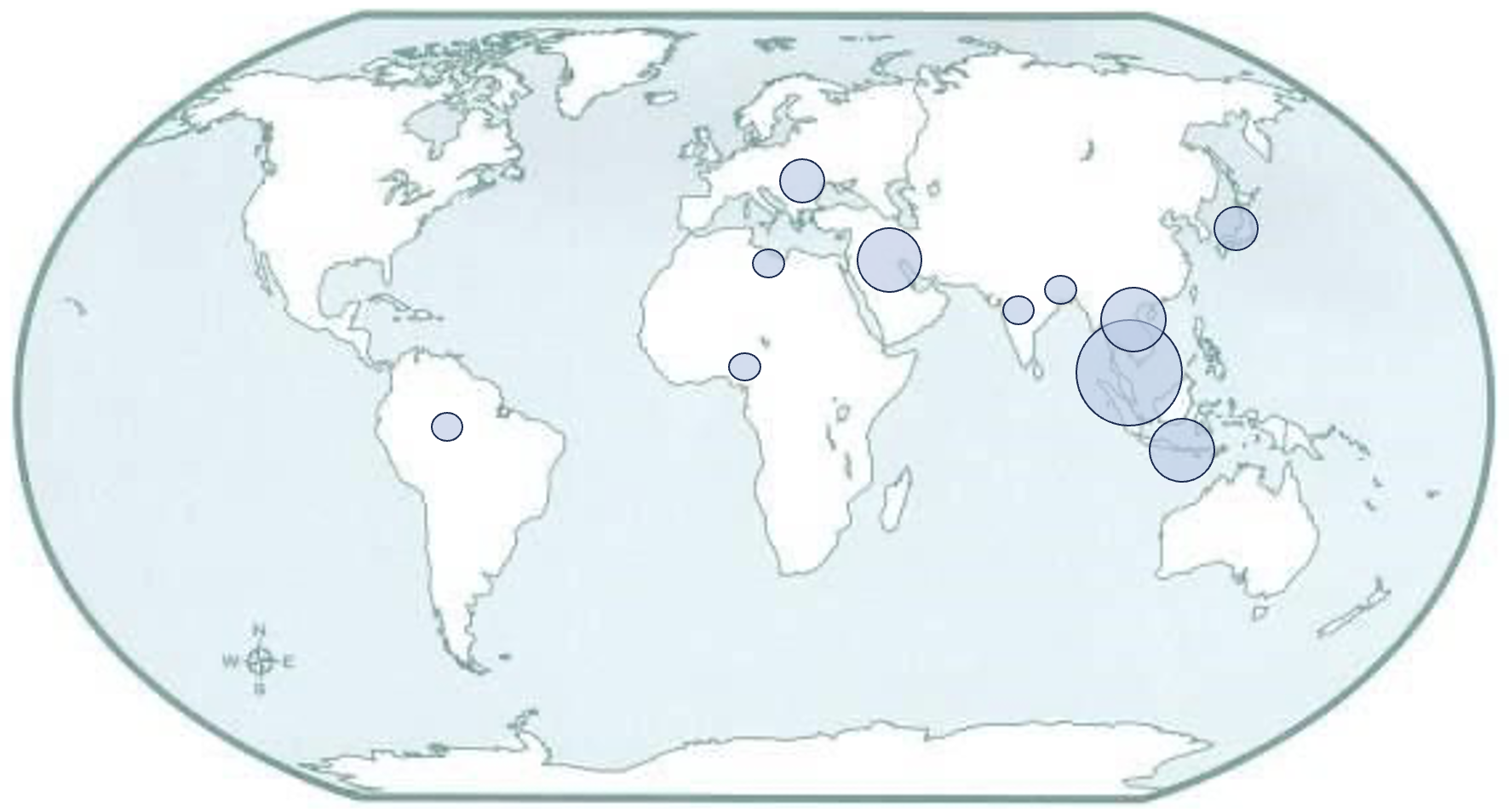Anticancer Potential of Bioactive Compounds from Microalgae. A Review
DOI:
https://doi.org/10.37934/armne.20.1.19Keywords:
Anticancer, antioxidants, bioactive, microalgaeAbstract
In this review, we discussed the important breakthroughs in the field of cancer treatment involving algae and microalgae. The continuous development and commercialization of marine drugs has been a rewarding scientific endeavour. The pipeline of marine-derived anticancer agents provides promising treatment options for patients with certain types of cancer. With the approval of four drugs and eighteen agents in late development, the pipeline of marine-derived anticancer drugs is one of the most robust in the industry. Natural products containing bioactive components have been increasingly popular in recent years Bioactive chemicals from marine organisms have been isolated after extensive research. About 9% of bioactive chemicals generated from marine organisms are found in algae and microalgae. Microalgae have been found to contain a variety of new metabolites with remarkable properties, comprising sterols, fatty acids, phenolic compounds, and carotenoids. Anticancer, antibacterial, antioxidant, and anti-inflammatory effects have been demonstrated for these substances.









